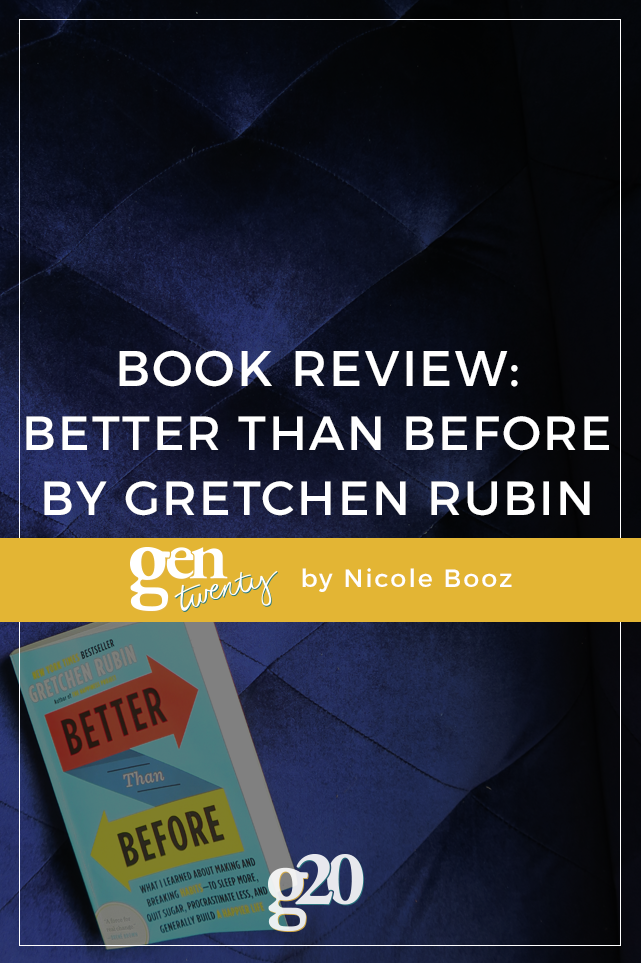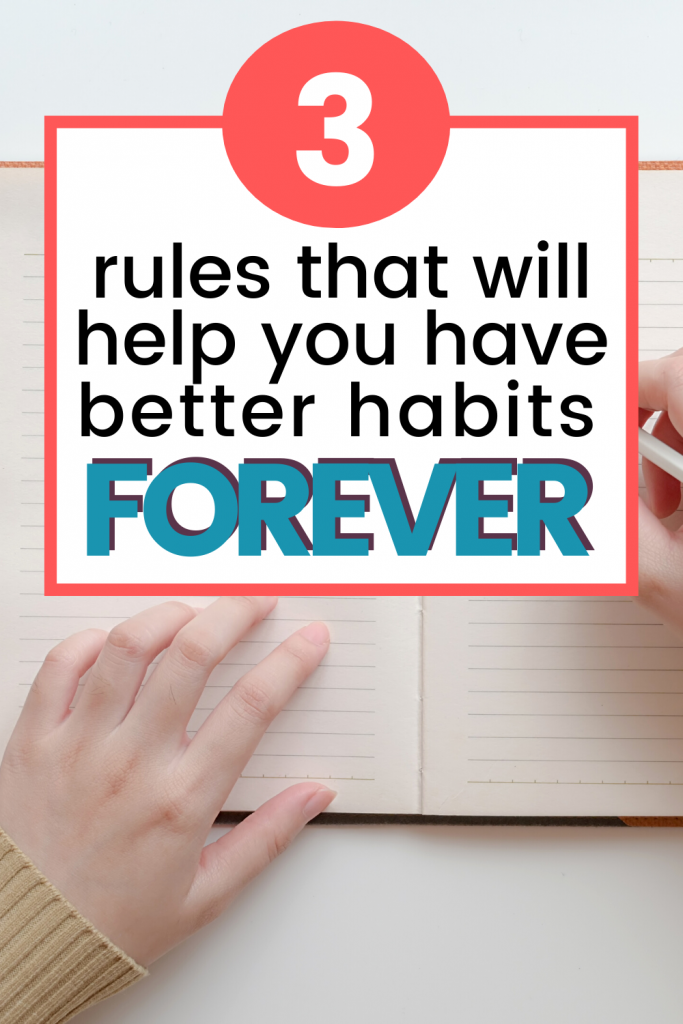
This post was originally published on October 4, 2016.
You’ve heard it before: Habits are the key to success.
You’ve also heard this before: Habits are hard to change.
Are these statements true or false? You have the power to decide for yourself.
I originally picked up Better Than Before because I found out that Gretchen Rubin was coming to speak in Seattle. I read The Happiness Project in college and jumped at the chance to see her speak about her new book. In the end, however, I wasn’t able to go to the event because of a scheduling conflict, so Better Than Before went back in my to-read-eventually pile.
I finally got around to reading it recently and many of the habit makers and breakers she discussed made sense to me in a new way. It’s funny how things come into your life at just the right moment.
Just like in THP, Rubin has a unique voice where she combines research and her own personal experiences to illustrate how things work (or don’t work) in our everyday lives. Many of us have similar struggles, so it’s easy enough to see a reflection of yourself in each example she gives.
There are many valuable examples and methods Rubin discusses in Better Than Before, here are the three that helped me the most:
1. Abstinence may be a more effective habit-former than moderation.
When it comes to many of our goals–especially diet and fitness related–the idea of moderation is preached as the go-to method. I know you’ve heard, “Don’t deprive yourself of X food that you love! Otherwise you’ll just crave it more and end up binge eating it later.”
But as Rubin points out, moderation takes effort. If you’re moderating yourself or telling yourself you can have one cookie per day but keep the whole box in your house, most people spend more time resisting the desire to eat the cookie than they do actually enjoying the one cookie they’ve allowed themselves to have.
Since moderation is preached all over social media, abstaining seems like a downright crazy method of reaching your goals. How could you possibly live without eating ice cream?!
If you think about it, abstaining isn’t all that abnormal. In fact, we abstain from many things already in our everyday lives, we just don’t think of it that way because we tell ourselves we “don’t do” or “don’t like” specific things.
I urge you to try it. Change your language. Start telling yourself “I don’t eat chocolate,” “I don’t like french fries,” “I don’t watch TV/Netflix on weekdays.” Replace these words with whatever habit it is you’re trying to break and see if taking away the choice makes it easier for you. You might just be an abstainer instead of a moderator.
[Tweet “Abstinence may be a more effective habit-former than moderation.”]
2. Make your own habit “rules.”
Having rules is a good thing — it takes the mental effort out of having to make a decision. Similarly to abstaining, you are making the choice in advance and no longer have to sit on a mental seesaw weighing your options.
Say you’ve made it a goal to read 50 pages every day. You’re also binge watching something on Netflix. It’s 8 pm, you haven’t read your 50 pages yet but you really want to watch the next episode. Your rule is that you have to read 50 pages per day, no matter what. In this case, the rule wins and you turn off the TV to reach your goal. Even though you want to watch TV in the moment, you don’t need to go back and forth with yourself because that’s the rule.
Say you later figure out 50 pages is too many to reasonably read in a day. You can adjust your goal to 25 pages, but not today. You can only adjust your rules for the following day to avoid making split-second, careless decisions.
For example, here are some habit rules I’ve made for myself that have worked for me:
- I eat dessert at restaurants, not at home.
- I am active 30 minutes per day.
- We do laundry and clean my house on Sundays.
- I read 50 pages per day.
They key is to make rules that are achievable for you (time-wise and financially), align with your goals, and are non-negotiable.
Related: Stop Negotiating With Yourself: Changing Your Habits Once and For All
If you struggle with this, try making a rule that you aren’t allowed to make split-second decisions. Everything has to be decided the day before. Are you having a glass of wine at dinner tomorrow? Decide that now. Are you going to the gym tomorrow? Decide that now. Plan each day so you don’t have to make any major habit-related decisions tomorrow.
[Tweet “Tip: Make your habits non-negotiable.”]

3. Piggyback your habits on to each other by coupling them.
When I read this chapter, it made so much sense I have no idea why I hadn’t thought of it before. Piggybacking your habits means starting a new habit based off of a current habit.
For example, say you want to start doing push-ups everyday. Consider an established habit you already complete daily; you already brush your teeth every morning so now all you have to do it start doing five push-ups after you brush your teeth. Soon enough, the habits will be coupled and you won’t even consciously think about doing those push-ups — a habit has formed.
Another way to do this is when you have a routine change. In the book, Rubin discusses how she started a new job and wanted to make going to the gym a habit. Instead of saying, “Oh I’m going to start my new gym habit in a month after I get settled in this new position,” she started going to the gym her very first day of work. Of course it’s hard and you probably don’t want to, but saying “I’ll do it later” is only setting yourself up for failure down the road.
[Tweet “Saying ‘I’ll do it later,’ is only setting yourself up for failure.”]
If you struggle with forming and keeping your habits in line, I recommend this book to you. I don’t think Rubin’s storytelling and research style is for everyone, but I encourage you to keep an open mind and try to see yourself in each example see gives.
What’s a new habit you’re trying to form?
Have you read Better Than Before? I’d love to hear what you thought.
